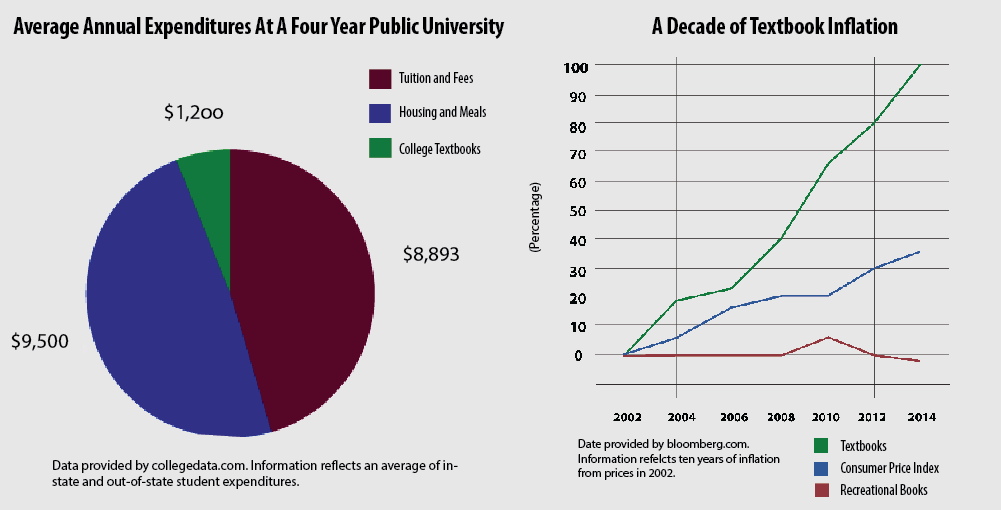News Editor
As the semester comes to a close, students can look forward to a cash bonus from their textbooks as stores and retail websites begin purchasing them for resale. However, many students will likely be disappointed by the amount they receive, leaving many with questions regarding the practicality of buying textbooks.
According to a report published by the U.S. Public Interest Research Group (PIRG) early this year, “Over the past decade, college textbook prices have increased by 82%, or at three times the rate of inflation. Textbooks are one of the largest out-of-pocket expenses for students and families trying to afford college every year.”
The report estimates that students, on average, spend $1,200 on books a year, which cumulatively amounts to 14 percent of tuition in a four-year degree program.
“I feel like they’re always overpriced,” freshman John Paranto said. “Some professors I have just read out of the textbooks, and then there’s some classes where you go and buy a really expensive textbook and never use it.
Paranto attempts to offset the heavy price of textbooks by shopping online.
“If I can’t find it cheap online I’ll just get it here,” Paranto said. “But most of the time you have to get it here because teachers want you to have it right away.
For some students, finding alternative sources still remains an unavailable option. According to the report, 65 percent of students surveyed claimed they have opted out of buying textbooks due to the price. Of the 65 percent of students going without textbooks, 94 percent of them claimed they suffered academically due to the lack of resources available to them otherwise.
The report issued by PIRG goes on to advocate for the implementation of open-textbooks, books written by faculty and peer-reviewed. These books are open license, making them free online for download and significantly cheaper in print.
Unfortunately, the publishing industry still controls the market place, which the report admits makes the transition particularly difficult.
Other options are still available, including websites like SlugBooks. The site compiles prices of textbooks into one search engine, allowing students to find the cheapest available option, cross referencing both university bookstores and major retail sites like Amazon and e-Bay.
The site also has a buyback option, letting students combat the low prices offered by bookstores.
With higher education frequently being placed on the policy back- burner, it’s no wonder tuition and textbooks continue to plague aspiring students. Until open-textbooks become more widely available, students will have to continue using innovative means to receive the most bang for their buck.
cferganc@mavs.coloradomesa.edu


Recent Comments